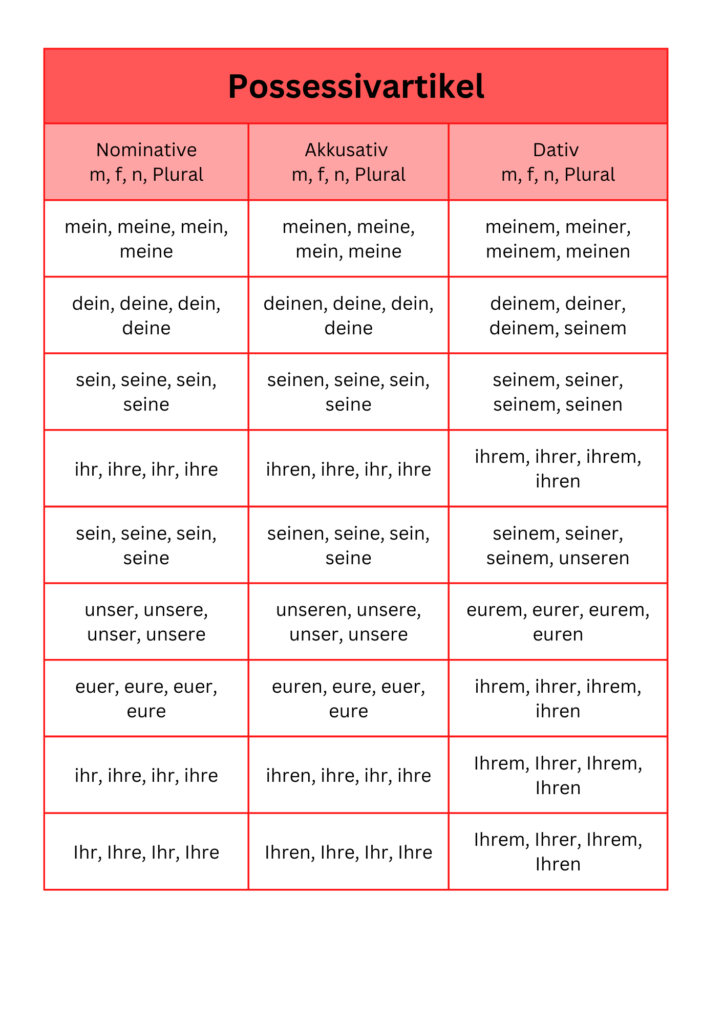Choose another topic at the bottom!
Articles and nouns in dative
What is the difference between accusative and dative?
Many books make the following difference: the accusative object is the direct object that receives the direct impact of the verb’s action. And the dative object is an object that ist impacted by the verb in an indirect manner. But is that really enough to understand it?
The nominative is: Who/What —- Wer/Was?
The accusative is: Whom/What —- Wen/Was?
The dative is: Whom/What —- Wem/Was?
When you have a verb, learn it with a pattern. The non-living nouns have all the “What”, but the living nouns are categorized like I just showed you.
Example: Sie gratuliert dem Professor She congratulates the professor.
We have a subject (Sie), verb (gratulieren), and object in dative (dem Professor).
The pattern you should learn is:
jemandem gratulieren – to congratulate sb.
The modification of the articles and nouns in Dative are the following:
der Baum ——- dem Baum (male)
die Tomate ——- der Tomate (female)
das Museum ——- dem Museum (neutral)
die Kinder ——- den Kindern (Plural)
Indefinite articles are the following:
ein Baum —– einem Baum
die Tomate —– einer Tomate
ein Museum —– einem Museum
xxx Kinder —– xxx Kindern
Check out the videos I provided for you, don’t feel intimidated by this grammar. If you start our German experience with an open mind, you will have a good foundation. CLICK >>
Same goes for negating nouns with "kein-"
Ich gratuliere keinem Schüler. (male)
Ich gratuliere keiner Teilnehmerin. (female)
Ich gratuliere keinem Mädchen. (neutral)
Ich helfe keinen Schülern. (plural)
...and possessive articles
For declining possessive articles, you need to not only check out if your noun is accusative or dative, but also pay attention to the “owner” (my, your, their…) and the possession (male, female, neutral or plural).
M F N PL
mein —- meinem meiner meinem meinen (-n)
dein —- deinem deiner deinem deinen (-n)
WATCH THE REST OF THE LIST HERE >>
Verbs with Dative are here ^ and review Nominative, Accusative, and Dative on the video below!
Personal pronouns in Dative
Personal pronouns also change from nominative to accusastive
Ich —– Mir
Du —– Dir
Er —– Ihm
Sie —– Ihr
Es —– Es
Wir —– Uns
Ihr —– Euch
Sie —– Ihnen
When you see the sentence: “Ich glaube dir.” (I believe you.), you know now immediately who is the subject and who is the object to whom something is done to. Why? Because “I” is in nominative (= subject) and “you” is in dative (= object).
<< PRACTISE WITH THE VIDEO ON THE LEFT!

Go German 2022. All Rights reserved.
Anna Ambatielou, Dresden
E-Mail: los_sprachschule@yahoo.com
Website: go-german.online
